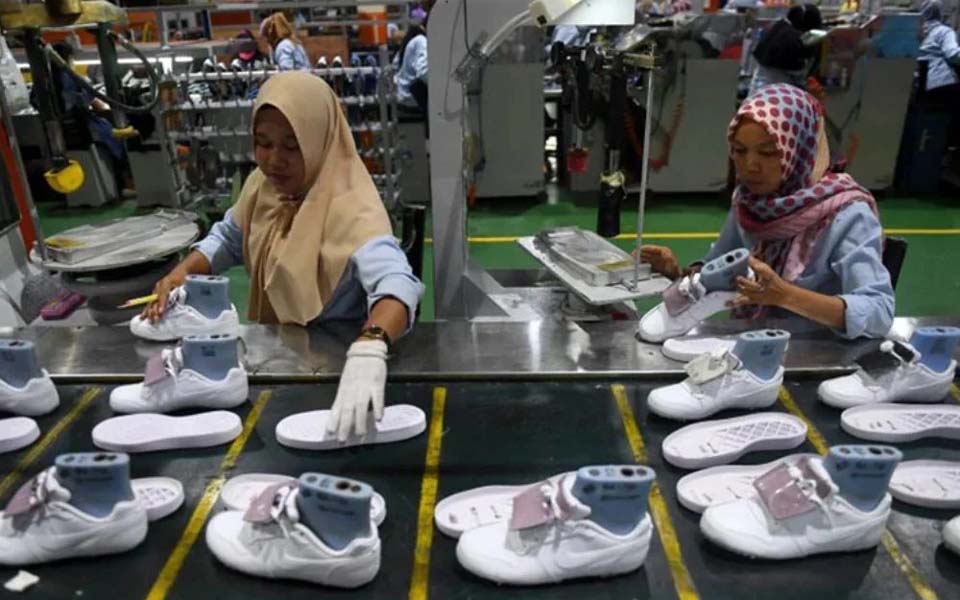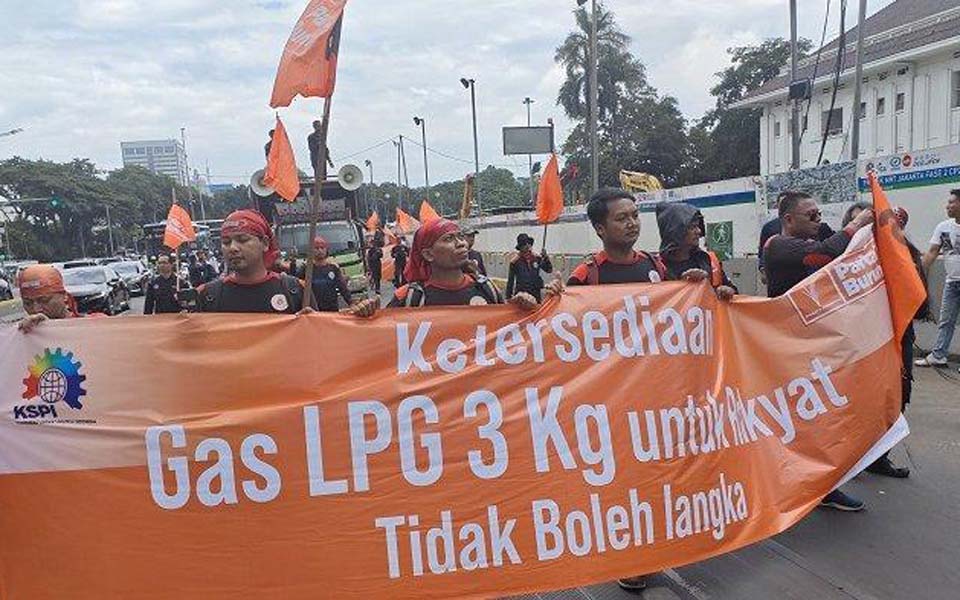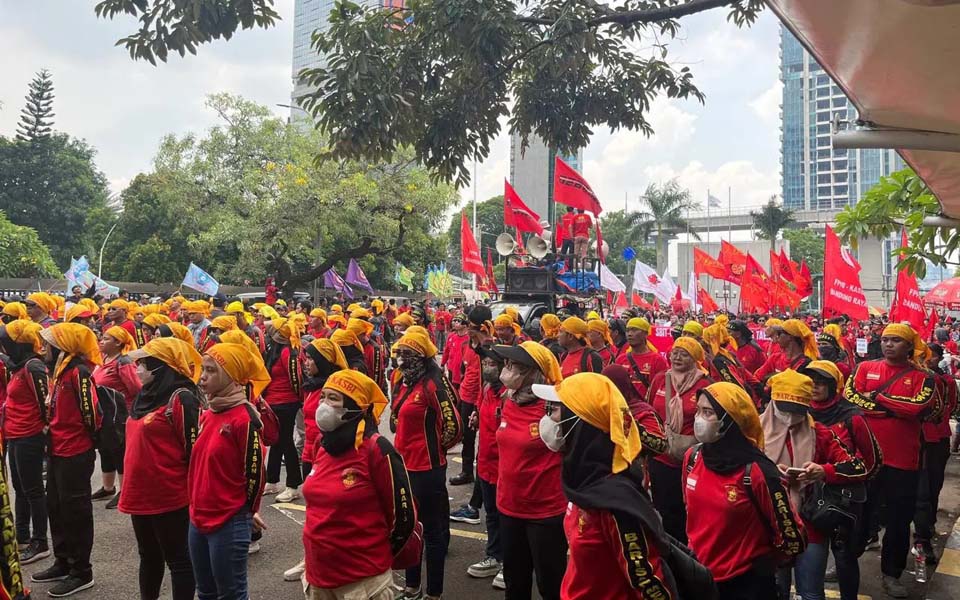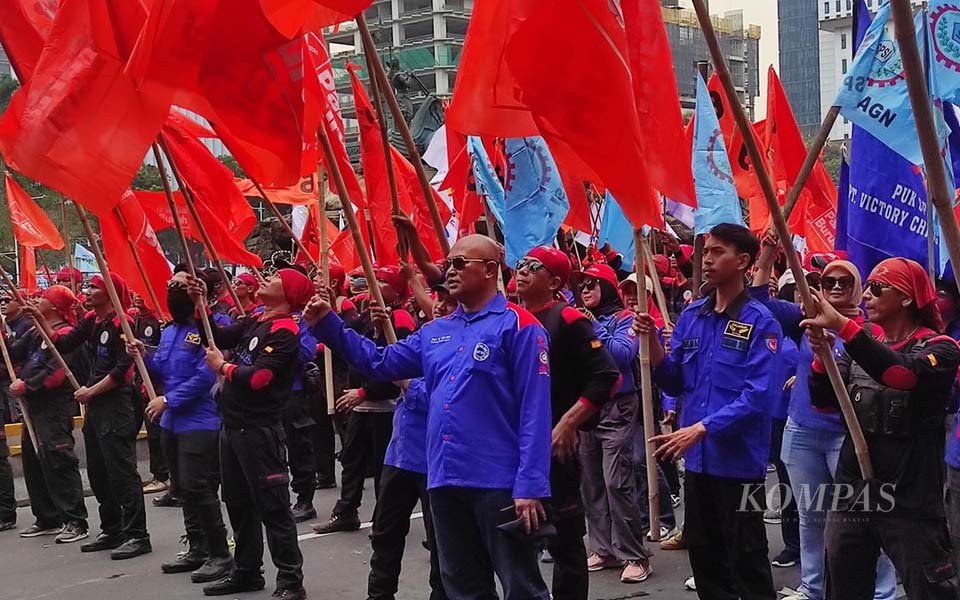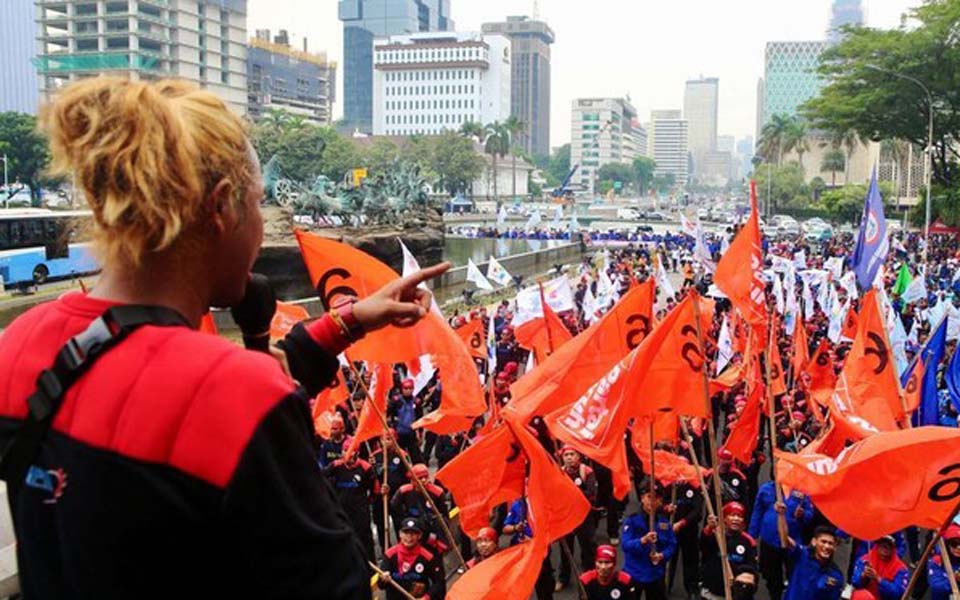Jakarta – The minimum wage is still not enough to fulfil the daily needs of workers in the major cities of Medan, Bandung, Jakarta and Surabaya. Many workers are making up the difference by falling into debt while job security levels remain low.
International Labour Day or May Day commemorations on Wednesday and Thursday, which took place simultaneously in Jakarta and major cities throughout Indonesia, proceed relatively peacefully. Workers from a number of different trade union associations or federations held a series of orderly marches.
Workers raised a number of concerns, including among others, wage levels that are now unable to fulfil the most basic need: food. This was also depicted by the purchasing power index and the employee perception index in a survey released by the All Indonesian Employees Organisation (OPSI) in Jakarta on Wednesday April 30.
The qualitative index was obtained through a survey of 910 workers with a wage of between 1-15 million rupiah per month in the cities of Jakarta, Medan, Surabaya and Bandung. Around half of the respondents surveyed had an income of between 1-3 million rupiah per month.
OPSI president Yanuar Risky said that the average minimum wage applied in these cities was 900,000 rupiah per month. This figure is clearly not enough for workers because the purchasing power index survey indicated that in order to meet basic consumption needs, an unmarried worker contracting a house needs a minimum of 1.82 million rupiah a month. Unmarried workers paying instalments on a house meanwhile need a minimum of 1.41 million rupiah per month and workers with families paying off a house need a minimum of 3.12 million rupiah.
Falling into debt
The purchasing power index indicates that the minimum wage being applied in these four cities is simply not enough to cover the real cost of living. In order to make up the deficit, workers have to borrow from employee cooperatives, borrow on their credit cards, seek loans from family and friends, pawn their belongings or simply try to economise.
Credit card debt is mostly accumulated by respondents with an income of between 3-5 million rupiah per month. “But, the survey also found that there are workers with incomes under 1 million rupiah a month who are relying on credit card debt for basic consumption”, said Risky.
The survey, carried out by OPSI in cooperation with German-based Friedrich Ebert Stiftung (FES), also measured the work perception index which covers transportation, food, healthcare, education, job security and social security. The lowest index was found for workers’ expectations of job security followed by meeting the cost of household necessities.
Based on the survey – which took place between January and April this year – Risky warned that it will be difficult for workers to bear the recent increases in the price of food and transportation costs because the largest allocation of a worker’s income is use for these two components of expenditure.
Mistreatment
In the Nusantara Bonded Zones (KBN) of Cakung and Marunda in North Jakarta, a demonstration by around 2,000 workers took place on Wednesday to protest the mistreatment of workers. They also said that this mistreatment is becoming more systematic because of the growing strength of capitalism and the weakness of government control.
The protesters said this mistreatment includes, among other things, low wages that are inadequate to cover the real cost of living. They also cited frequent acts of coercion and intimidation, the failure to pay dismissed workers severance pay, the lack of healthcare cover and limited opportunities for carrier advancement.
“Because of this therefore, we are calling on the government to immediately establish a labour supervisory body directly under [the authority] of the president and to deal with labour problems as fairly and justly as possible”, said Halim, the chairperson of the Jakarta National Workers Union (SPN). “Many workers’ wages are inadequate and healthcare is never provided for”, he added.
Halim also called for the abolition of outsourcing and contract labour saying this only benefits the capitalist class. “Moreover labour systems such as this violate Law Number 13/2003 on the resolution of industrial disputes”, said Halim.
Wartini (25) and Leny (23), contract labourers with the company PT Msg in the Cakung KBN said that as a result of this poor treatment, workers face an uncertain future. “The size of our monthly wage is already inadequate because increases in the price of basic commodities continue to take place”, they said.
Wartini and Leny receive a wage from PT Msg of 976,800 rupiah per month. “Our wages have not been increased for two years. The price of basic commodities continues to rise. What’s more, for rent, food and transport it is totally inadequate”, said Leny.
Tuti (28), Irma (32) and Sulastri (29), employees with PT Western Indonesia who receive a wage in accordance with the minimum regional wage (UMP) believe that it needs to be corrected and increased again in concert with the increase in the cost of living. They also raised questions about the wages of foreign workers which are higher than their Indonesian counterparts even though their skills are the same.
Based on information obtained from workers, their average wage in the KBN is around 900,000 to 1.35 million rupiah a month. Many of these workers do not receive holiday bonuses (THR). (day/cal/ARN)
[Translated by James Balowski.]







